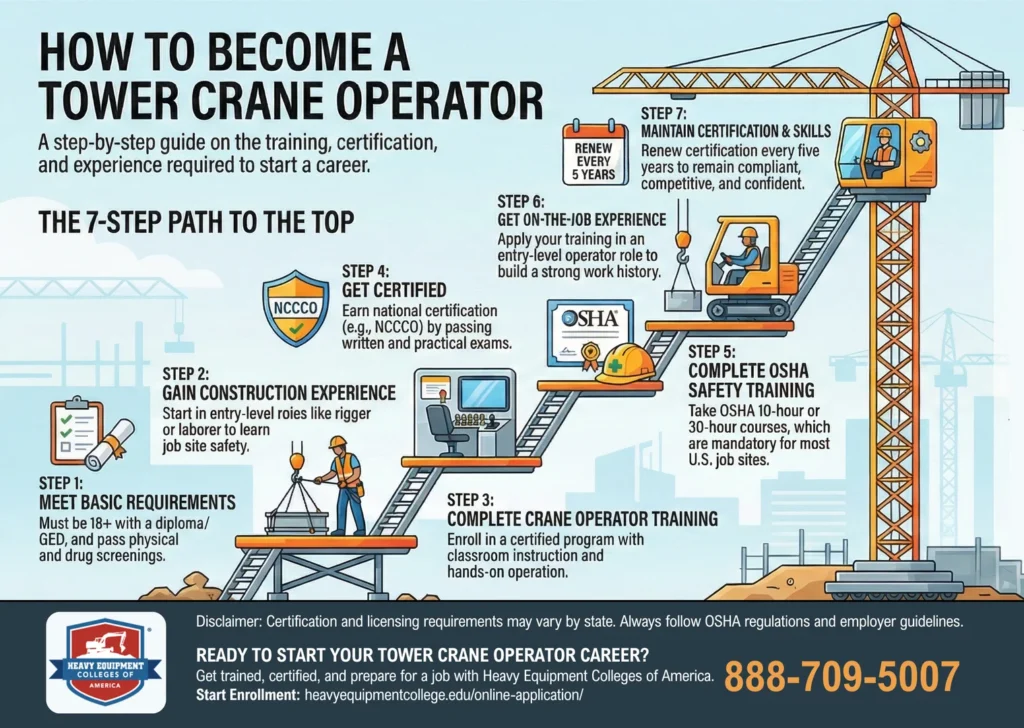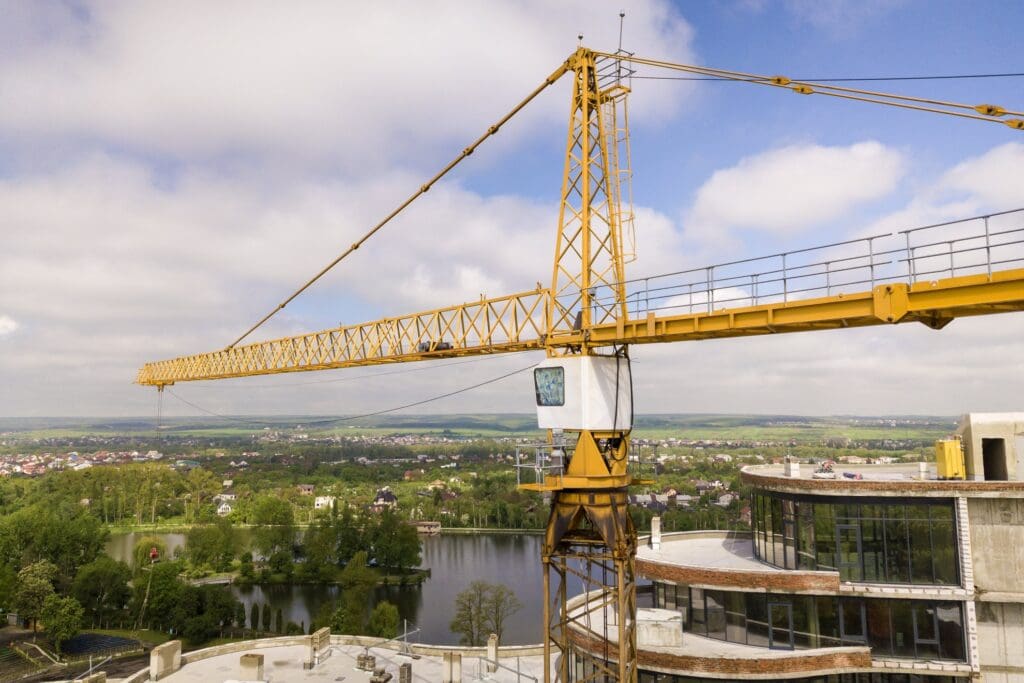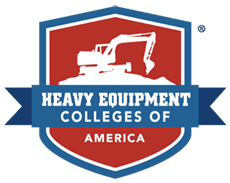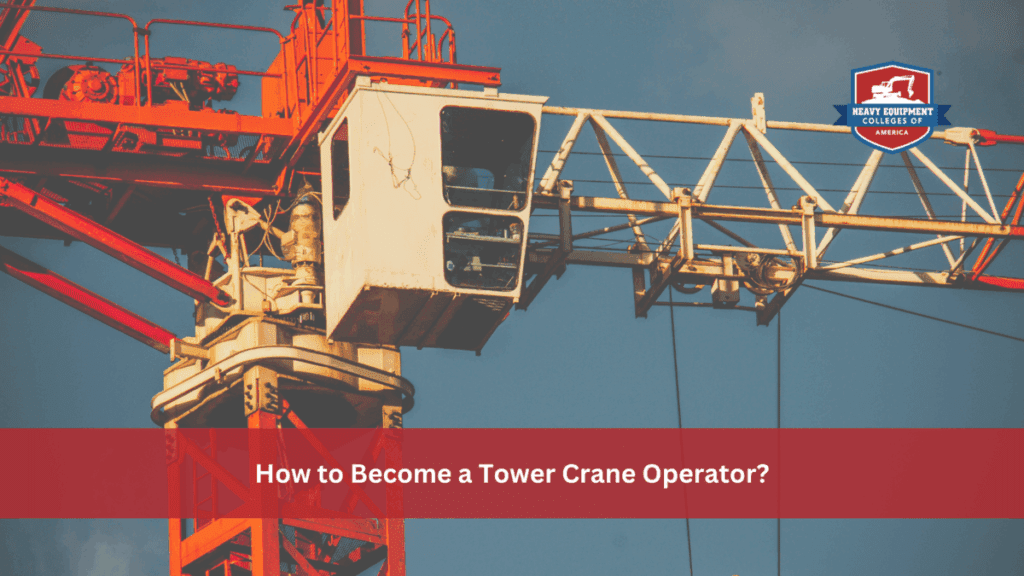Tower crane operation is a specialized career that requires technical training, physical readiness, and nationally recognized certification. It’s a path well-suited for those who want to work in high-demand construction environments with clear advancement opportunities.
At Heavy Equipment Colleges of America (HEC), we help students build the skills and certifications needed to enter the field with confidence. This guide outlines every step of how to become a tower crane operator, so you can start your heavy equipment career on the right foot.
Table of Contents
Step-By-Step Guide to Becoming a Tower Crane Operator
Becoming a tower crane operator involves more than just learning to use the equipment. It requires certification, hands-on training, safety awareness, and industry experience.
The steps below will walk you through the complete process, from meeting initial qualifications to maintaining your license and advancing your career.

Start Your Crane Operator Career With Confidence
Kickstart Your Crane Operator Journey Today!
Hands-On Training | OSHA-Compliant Courses | Job-Ready Skills
Become a Certified Tower Crane Operator Today!
Start Enrollment ProcessFind The Right Location For You1. Meet Basic Requirements
Before stepping into a training program, you’ll need to meet the minimum qualifications required by most employers and certifying bodies. These requirements ensure you’re legally and physically capable of operating heavy equipment safely.
Some general requirements include:
- Be at least 18 years old
- Hold a high school diploma or GED
- Pass a physical exam to confirm vision, hearing, and general fitness
- Pass a substance abuse screening
- Have a valid driver’s license
2. Gain Relevant Experience
You don’t start your career by hopping into a crane that’s hundreds of feet in the air. Many tower crane operators begin with entry-level construction jobs to build familiarity with equipment, safety procedures, and site logistics.
You’ll need foundational experience to gain the awareness and site knowledge necessary to move safely and confidently into crane operation.
Common entry-level roles include:
- General laborer
- Signal person or rigger
- Forklift or skid steer operator
- Ground-level crane support roles
3. Complete Crane Operator Training
Formal training is the heart of becoming a tower crane operator. These official programs can range from a few weeks to several months, depending on the schedule and format.
When looking for a certified program near you, you’ll need to look at institutions that educate crane operators on:
- Crane mechanics and controls
- Load chart reading
- Site safety and OSHA compliance
- Rigging fundamentals
- Hands-on operation of various cranes
Programs like the Tower Crane Certification Program at Heavy Equipment Colleges of America (HEC) are built specifically to prepare students for real-world job sites and national exams.
With campuses in Washington State, Oklahoma, Georgia, and California, these programs set you up for success as a heavy equipment operator.
4. Get Certified
To legally operate a tower crane, you’ll need certification from the National Commission for the Certification of Crane Operators (NCCCO) or a similar nationally accredited organization. Trusted schools like HEC will help you prepare for the exams and become certified.
NCCCO Certification Includes:
- A written exam covering crane operations, load charts, and safety
- A practical hands-on exam demonstrating real crane operation
- A medical exam confirming you meet physical and vision standards
Some states, like California and New York, may have additional licensing requirements, so check your state’s board for local regulations.
5. Get OSHA-Compliant Safety Training
To work on U.S. job sites, OSHA safety training is often mandatory. This training covers fall protection, hazard communication, PPE, and safe equipment operation. It’s also a great way to boost your resume and confidence before entering a high-risk job environment.
At a minimum, new crane operators should complete:
- OSHA 10-Hour Construction Training for entry-level safety
- OSHA 30-Hour Training for supervisors or operators on larger sites
6. Get On-the-Job Experience
Once you’re certified, it’s time to build your portfolio with real-world experience. This is where your classroom training is put to the test in the field, and your career officially begins.
To bulk up your resume and help it stand out, be sure to list out your NCCCO certifications, completed OSHA trainings, and any relevant construction or rigging experience. All of this information shows employers that you’re certified to work and know your way around a construction site.
7. Maintain Certification and Skills
To stay in good standing with the NCCCO, you must renew your tower crane certification every five years. This includes passing a recertification written exam and continuing to meet medical requirements.
Operators who stay up to date with the ever-changing technologies of tower cranes also have a competitive edge. Continuing your education, taking refresher courses, and practicing new skills can help maintain both your license and your confidence.

How Long Does It Take to Become a Tower Crane Operator?
The total time can vary depending on your starting point, availability, and training program format. Most candidates can become certified and job-ready within 6 to 12 months, especially if attending an intensive program like those offered by HEC.
The average timeline for becoming a tower crane operator looks like:
- Gaining Entry-Level Construction Experience: 3–12 months
- Completing Training and Certifications: 4–10 weeks
Finding Your First Tower Crane Job: 1–3 months
Is a Tower Crane Operator Career Safe and Rewarding?
If you’re committed to safety, focus, and continued learning, a career as a crane operator can be a fulfilling one. With tons of opportunities for career advancement and a high demand for workers, you’ll have a stable and rewarding experience.
Many tower crane operators take pride in helping shape skylines and in knowing they play a critical role in public infrastructure and safety.
The work environment can be high-risk due to heights, loads, and weather conditions. However, modern safety protocols and technology have made the job safer than ever.
Some of the benefits that come with choosing a career as a tower crane operator include:
- High earning potential (especially in union or city-based projects)
- Strong job demand across the construction industry
- Specialized skillsets that are hard to automate
- Daily challenges that keep the job interesting
Get Credited as a Tower Crane Operator With HEC
Learning how to become a tower crane operator doesn’t happen overnight. However, with the right training, focus, and credentials, you’ll be on your way to a rewarding and fulfilling career.
If you’re ready to take the next step toward becoming a certified crane operator, Heavy Equipment Colleges of America offers programs designed to launch your career. We offer a variety of heavy equipment certification programs, including an extensive Tower Crane Certification Program.
Students receive the best of both classroom learning and hands-on crane training, as well as OSHA safety training and assistance with the job hunt.
Apply online today and take your first step toward operating cranes on major construction projects across the country.
Build a Strong Future in Heavy Equipment Operation
Train to Operate Tower Cranes Safely and Confidently
Real-World Experience | Expert Instructors | Career-Focused Training
Enroll in Our Crane Operator Program Today!
Start Enrollment ProcessFind The Right Location For You
